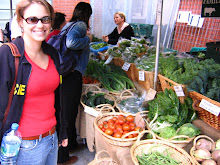 Thanksgiving used to be my favorite holiday. Any holiday premised entirely on cooking and eating is my kind of party. But, after encountering indigenous people and the remnants of their civilizations, all over the world (Adivasi in India, Anishinabe in Minnesota and Taino in the Caribbean) who have been pushed off their land by colonizing populations, I have lost my appetite for this particular celebration. In the runup to the holidays in the U.S., it’s easy to overlook the foundations of this holiday, and the tragic aftermath of western contact in the Americas.
Thanksgiving used to be my favorite holiday. Any holiday premised entirely on cooking and eating is my kind of party. But, after encountering indigenous people and the remnants of their civilizations, all over the world (Adivasi in India, Anishinabe in Minnesota and Taino in the Caribbean) who have been pushed off their land by colonizing populations, I have lost my appetite for this particular celebration. In the runup to the holidays in the U.S., it’s easy to overlook the foundations of this holiday, and the tragic aftermath of western contact in the Americas.Being in the Dominican Republic over this holiday, and having just left White Earth Indian Reservation, I was more than usually conscious of the impact of European contact and settlement in the western hemisphere. Colombus landed here first, and his brother, Bartholomew got the loot (slaves, land, gold, etc) for the Spanish crown. The Taino, not having immunity to European crowd diseases died in waves of epidemics. Those that did not die immediately were drafted as laborers for the colonies and were worked to death. African slaves were imported to work the sugar cane, and the children of Spanish plantation owners and African slaves now compose the population of most of the D.R. The only Caribbean island with any remaining native population of Taino is the island of Dominica—which is now an eco-reserve for tourists and the setting of the Pirates of the Caribbean films.
This Thanksgiving, Erin and I were staying in the house of AnaJulia and her daughter AnaMaria. Their house is our home base for banana farmer interviews in the region. For obvious reasons, Thanksgiving is not celebrated here, and given that we missed our families, we asked Dona Julia to cook us a special (vegetarian) meal to be shared in the afternoon. She knocked herself out! We had two kinds of rice (yellow and white), the typical Dominican tomato-based bean stew, fried sweet plantains, stewed eggplant, stewed squash (tayote), potato salad, green salad and fresh fruit. The whole meal was traditional Dominican food--minus the meat—which is a huge part of almost every meal here. Dona Julia joked that she bought every vegetable available in Moncion for us. We ate really well, and we felt pretty lucky.
We also felt pretty inspired. Next Thanksgiving, instead of gorging ourselves on food from factory farms in a macabre facsimile of the imagined and distorted origins of this holiday (see Eating Animals, by Jonathon Safran Foer), why don’t we honor the memory and legacy of indigenous people, and their agri-cultures in a conscious way by incorporating wild foods and local foods into our Thanksgiving meals and share these meals with a wider community? Why don’t we dedicate Black Friday as a day of service to rectifying the legacies of colonialism instead of a day of indulgence? Why don’t we organize ourselves to help return land to the landless in whatever way we can? We cannot make up for the sins of our forebears, but we can definitely stop being part of the problem. Start making plans now!



No comments:
Post a Comment